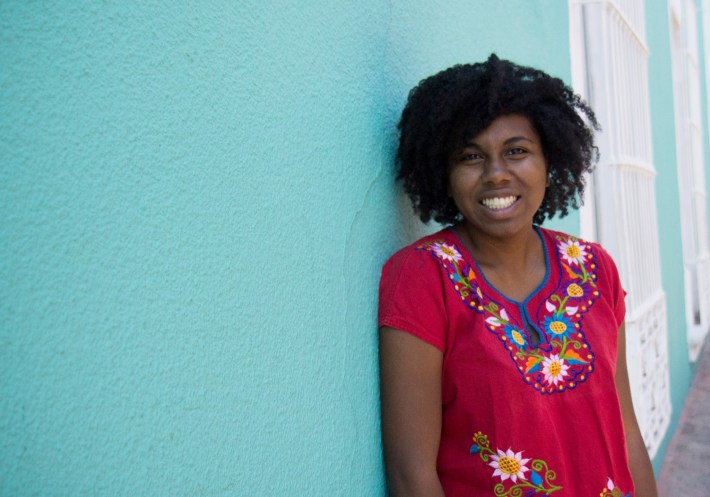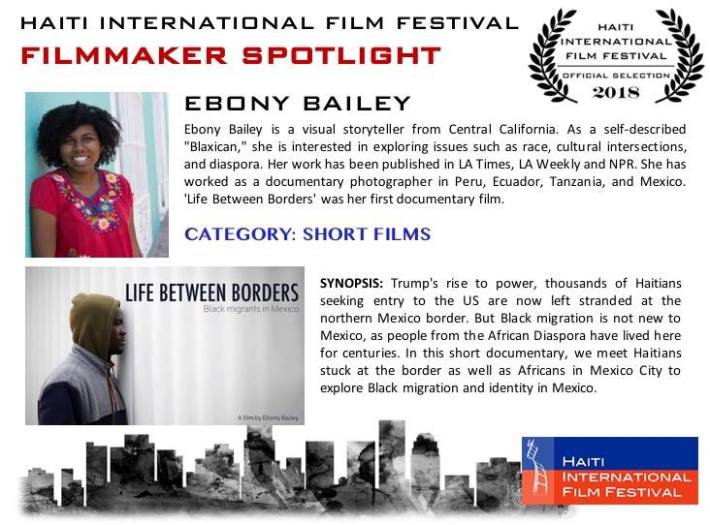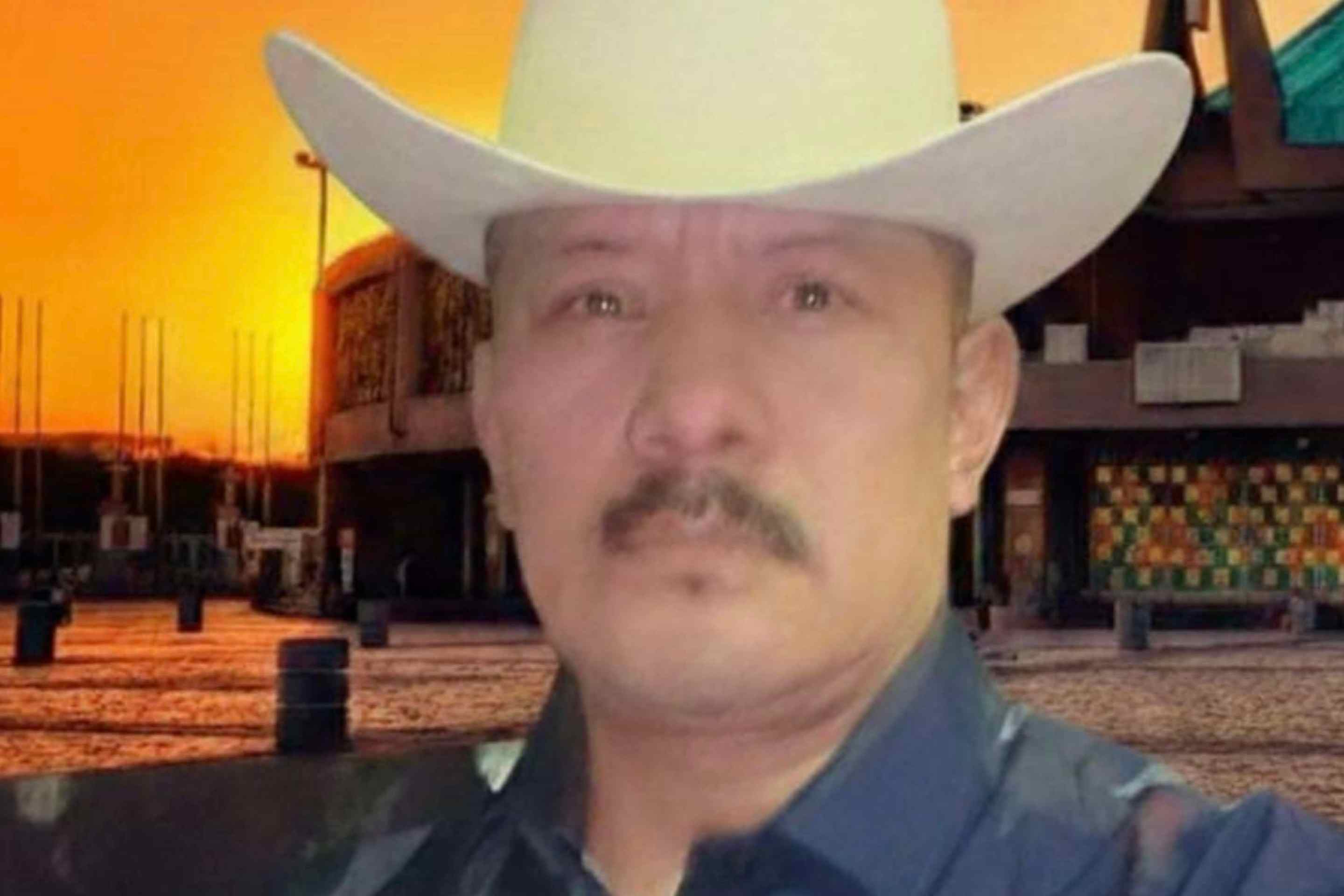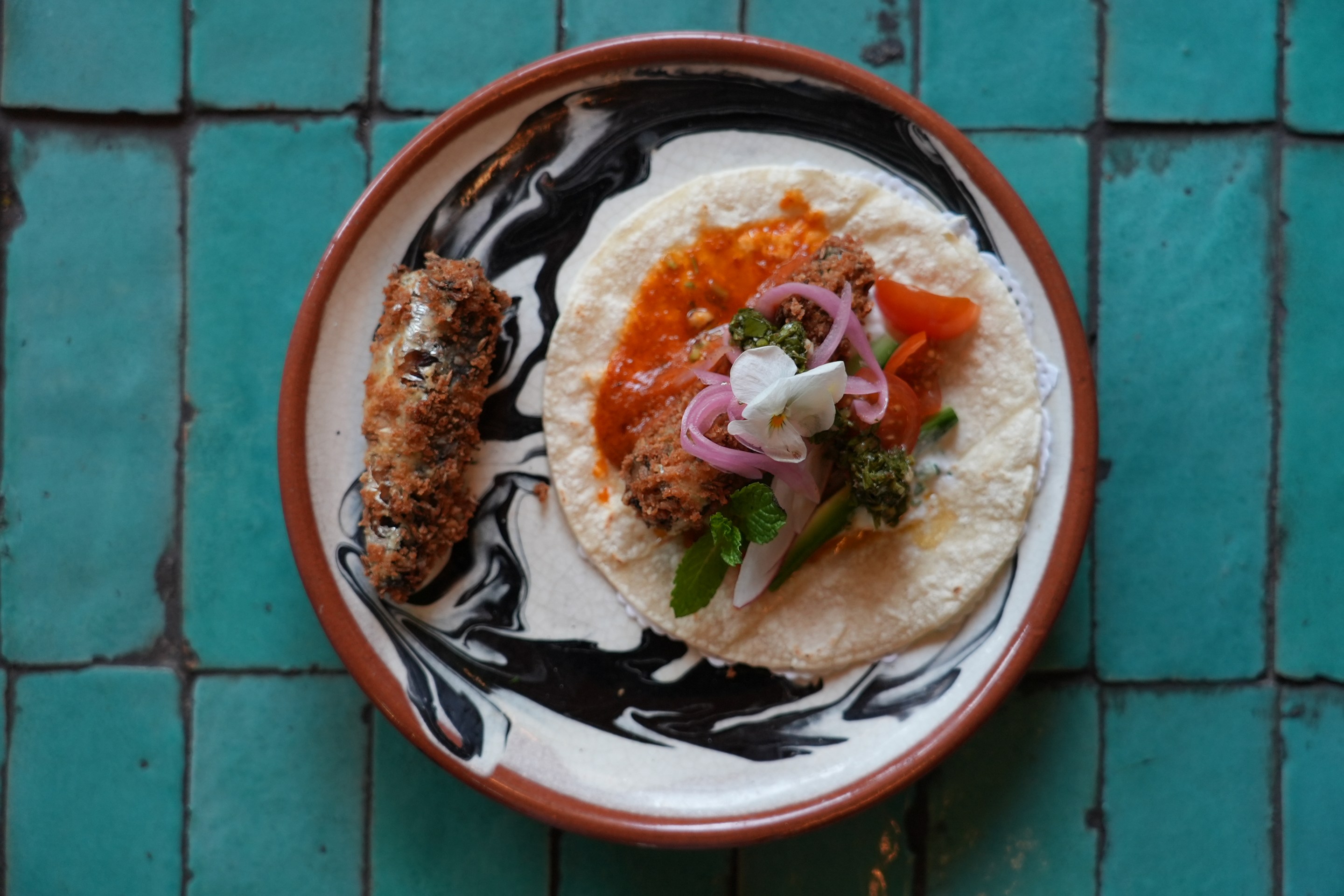[dropcap size=big]A[/dropcap]fro-Chicana director Ebony Bailey was reading the paper in Mexico City two years ago when she came upon a photo from the border that was unusual. Migrants, gathered in Tijuana. But not the faces usually expected.
“I thought, ‘Why are they all black? More people who look like me in Mexico?’” Bailey told L.A. Taco. “My curiosity was piqued.” That curiosity lead to her beautifully crafted documentary Life Between Borders: Black Migrants in Mexico on the life of Haitian migrants living in Tijuana.
The film will screen Saturday in Hollywood at the Haitian International Film Festival where Bailey will be honored with the Samuel L. Coleman Scholarship for Emerging Filmmakers. Except, she won’t actually be there.
“I know! I’m so bummed I’m not going to be there,” Bailey told L.A. Taco via telephone from Mexico City, where the Central California native is earning her master’s in documentary film at UNAM. She currently renewing her Mexican residency and cannot leave the country.
L.A. Taco spoke to Bailey Thursday about what it’s like to be a black Mexican American living in Mexico, what she thinks about the hype around La Negrada, and what she’s got cooking for her next documentary film.
LA TACO: What are your thoughts on the film La Negrada? I know the director said some harsh words but is it still an important film as Mexico’s first black major motion picture? Or is just exploitation?
EB: I think it’s a missed opportunity. It’s important in a sense that it’s the first fiction film with an Afro-Mexican cast. But before I saw the film, I read the director’s comments and I read the backlash to his comments. [Note: Oaxaqueño director Jorge Pérez Solano gave an interview where he referred to indigenous Afro-Mexicans as savages.] And I had heard about the film a while back and was really hyped that it was going to give us the black community here some visibility.
But I was disappointed by the film. I would say that it is not blatantly racist but his comments do show through in the film. He's reproducing these colonial views that we've had for centuries of black Mexicans, black Latinxs and black people in general. I think he really believed he was doing something positive but there’s also this … I don’t want to say 'exploitation.' But being black esta de moda. It’s really trendy here right now and I think he was taking advantage of that.
Is there anything positive about the film besides representation?
It teaches us a lesson, especially here in Mexico. The Afro movement here right now is really about being more visible. And I think it’s a lesson to a lot of folks that not all visibility is good visibility.

What is it like to be a black Latina in Mexico right now?
It’s interesting because I’m in this weird in between. I identify as Mexican. My mom’s Mexican. I was raised in a Mexican household with Mexican views. But I’m conscious of the fact that I look different, that people see me and think I’m not Mexican. The cool thing is that when I tell people I’m half Mexican, they are very warm and accepting.
In terms racism, though, I would say that I get a lot of "innocent" racism. It’s not blatant like in the U.S. Like a lot of people ask if they can touch my hair. I also think is interesting because I see race from a very American perspective. Generally Mexicans don’t’ see race the way I see it. People here always tell me racism doesn’t exist that it’s classism. For me it’s both.
Is that what inspired your film?
In 2016, I took a certificate course on video editing in Mexico and we had to choose a final project. It could be anything – music video, short fiction, anything. I had a lot of trouble thinking of a final project, until one day I was reading La Jornada and saw a picture of (Haitian immigrants) at the northern Mexico border. From there I investigated the issue and decided to do my final project as a documentary on Black migrants in Mexico. I wrote the script in November of 2016. Filmed in December. And edited in January.
Can you walk us a little through the process of making it?
I did this as an individual project, meaning I filmed, produced, and edited the documentary myself. I wanted to prove to myself that I could produce a quality product with the resources that I had. But obviously, there were a lot of people that supported me along the way in different aspects.
I initially wanted to do a "portrait" of three characters – one Haitian, one South American, and one African. Their stories would have intersected. Of course, in documentary everything always changes. I went to la Casa Hankili Africa in the centro of Mexico City and talked to the administrator there. She gave me a lot of contacts on activists who work in afromexicanidad. I wanted to talk to everyone.
In Mexico City, I interviewed four people, Koulsy Lamko from Chad, Amadou Gueye from Senegal, Wilner Metelus from Haiti, and Seynabou Diédhiou. I told Wilner that I was interested in filming the Haitian community in Tijuana, and he gave me the contact information for Paulina Olvera, an activist for migrant issues in Tijuana. In Tijuana, I filmed for four days. Paulina drove me around to all the shelters and explained so much of the context to me. I am very grateful to her.
After filming I looked over all the material and began editing, then sound mixing, the color correction. That whole process took a month.

What are some of the reactions to the film you received either from average viewers or from people in those communities?
The reaction has been overwhelmingly positive. When I posted it on Vimeo in February 2017, I did not expect many people to see it. [Note: The film has more than 20,000 streams on Vimeo as of Thursday night.] A lot of people have told me that they did not know about the issue before seeing my film. Some professors have told me that they've shown it in their classes. It is refreshing to see that so many people are interested in this issue.
The reaction from the community has been positive as well. The best moment was when I showed the documentary to one of the people I interviewed – seeing his reaction was priceless and was the greatest marker of success for me.
What other projects are you working on?
I am currently working on a project that will be a sort of expansion of this theme, but it will also incorporate blackness in Mexico in general. It will be a longer documentary about the historical and present relationship that Mexico has with blackness. And for me, the Haitian community in Tijuana is part of that equation.
For more info on Ebony Bailey, follow her on Instagram. You can watch her documentary above or at the film festival Saturday Aug. 18 at the Barnsdall Gallery Theatre.






